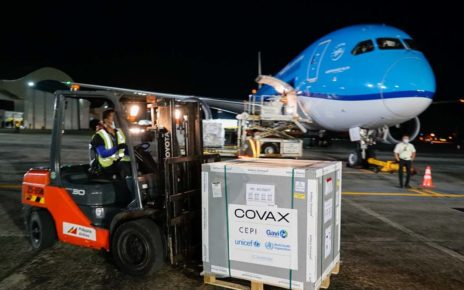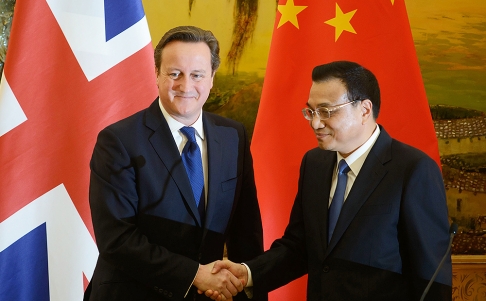On November 19, 2023, Argentina completed its presidential election, elevating libertarian candidate Javier Milei to the role. One of his primary campaign promises was to dollarize the economy. In addition to being a bold and uncommon campaign promise, Milei’s unconventional style of campaigning (eg. smashing central bank pinadas during television interviews) was idiosyncratic and contributed to questions about how well thought out and carefully planned this proposal was. Therefore, it is all the more pressing to ask what the rationale for dollarization is, and what is prompting this demand in Argentina.
A country dollarizing its economy voluntarily forfeits its ability to create more money, control interest rates on government loans, or control the value of its currency. It is generally done as a response to rampant debt and/or hyperinflation. Argentina’s economy is currently marked by GDP decline in 2023, 142% inflation, which was 54% in 2019, and debt valued at $44 billion (USD). When the previous, leftist government took office in 2019, the value of foreign debt was $10 billion (USD). In 2019 the exchange rate was 63 Pesos for one U.S. dollar. On the eve of Milei’s victory, it was 950 Argentine Pesos for 1 U.S. dollar, and a domestic consumer price index (CPI) that is the highest it has been in thirty years. The economic policies that led to this crisis were a regime of excessive government spending and borrowing, large scale money creation, extreme wage, employment, import, and distribution controls, and the use of currency controls in an effort to keep Argentine exports artificially expensive and debt repayment of foreign loans artificially cheap.
Ecuador and El Salvador are examples of countries that have attempted dollarization as a response to similar domestic dysfunctions. In 2001, El Salvador initiated the policy as part of a broader program of widespread liberalization and privatization. Its main aim was to attract foreign credit for Salvadoran national development. The informing assumption was (and continues to be) that foreign creditors would prefer to make loans in a largely stable currency. They could therefore be assured that loan repayments would not significantly decline in value. Dollarization did indeed lead to decreased interest rates on loans made to businesses and financial entities in El Salvador. However, these loans resulted in at most minimal capital for businesses outside of the already established upper class. Additionally, since countries that do not control their own monetary policy can only become more competitive through lowering wages, the poorest sectors of the economy actually grew even more disadvantaged because of receiving still lower wages.
Ecuador in 2000 serves as another instructive lesson, dollarizing as a response to severe inflation, and in order to control debt and attract foreign loans. This did achieve most of the measurable results that were expected. Inflation dropped to 7.93% in 2003 and has remained stable at approximately eight percent ever since. The country’s export sectors were expected to become more innovative and productive through reduced currency transaction costs and increased compatibility with the American market. However, this did not come to pass. In 2008, the Ecuadorian government had to impose a 2% tax on currency transactions in order to encourage domestic firms to shift towards goods that would be more profitable when sold in U.S. dollars. In other words, Ecuador’s government was forced to introduce a new economic intervention, a two percent tax on currency conversion, in order to try to achieve the outcome intended by its initial reduction of government interventions in its economy, namely controlling the value of its currency.
El Salvador and Ecuador’s experiences with dollarization suggest both how Milei should institute the policy and the results he can expect. Dollarization in Argentina is likely to significantly reduce inflation and attract more foreign investment. However, given Argentina’s current stagnation, the effects of not being able to implement an expansive monetary policy may be acutely painful. The U.S. federal reserve is currently raising interest rates to control inflation. Should Argentina dollarize, it would tie itself to this interest rate policy as well, preventing itself from using easier access to money (lower interest rates) to kick start growth and spending (basic Keynesianism).
Given the structural economic similarities between El Salvador and Ecuador prior to dollarization and Argentina now, it is reasonable to assume the same sectors that benefited after dollarization in those examples would benefit in Argentina as well. It is also clear that the nature and extent of Argentina’s economic dysfunction would require fine-tuned policies to make dollarization tenable. Whether or not the benefits of this hypothetical dollarization would be more widely shared in Argentina will depend on the nature of accompanying policies (e.g., sector targeted investment, trade support, or tax relief) that Milei’s administration would pursue.
Another area of Milei’s dollarization proposal that must be considered is that of its political context. His election victory was widely considered by foreign media to be a part of the global wave of “populist backlash” victories. Indeed, a rejection of neoliberal economic policies such as freeing flows of goods and money internationally and curbing central bank influence over the money supply has led to many other “populist” electoral victories (Trump, Brexit, Giorgia Meloni). Javier Milei, who has aligned himself with politicians like these, is advocating doubling down on the neoliberal policies rejected in some of these other elections. While this may seem surprising, one must remember that there have been economically populist governments in Argentina ever since Juan Peron in the 1940s, and recently with Nestor and Kristina Fernandez Kirchner in the 2000s and 2010s. These governments have implemented many of the policies that were widely seen as contributing to the crises that Milei’s neoliberal “shock therapy” proposals are designed as a response to. While Argentina’s voter anger leading to stronger neoliberal solutions is entirely predictable, only time will tell if Milei’s neoliberal direction will produce a new “left behind” class, and what the political ramifications of that would be.
Photo: Puerto Madero, Buenos Aires, 2018 (2018) by Deensel via Flikr. Licensed under Attribution 2.0 Generic.
Disclaimer: Any views or opinions in this article are solely that of the author and do not necessarily represent the NATO Association of Canada.





